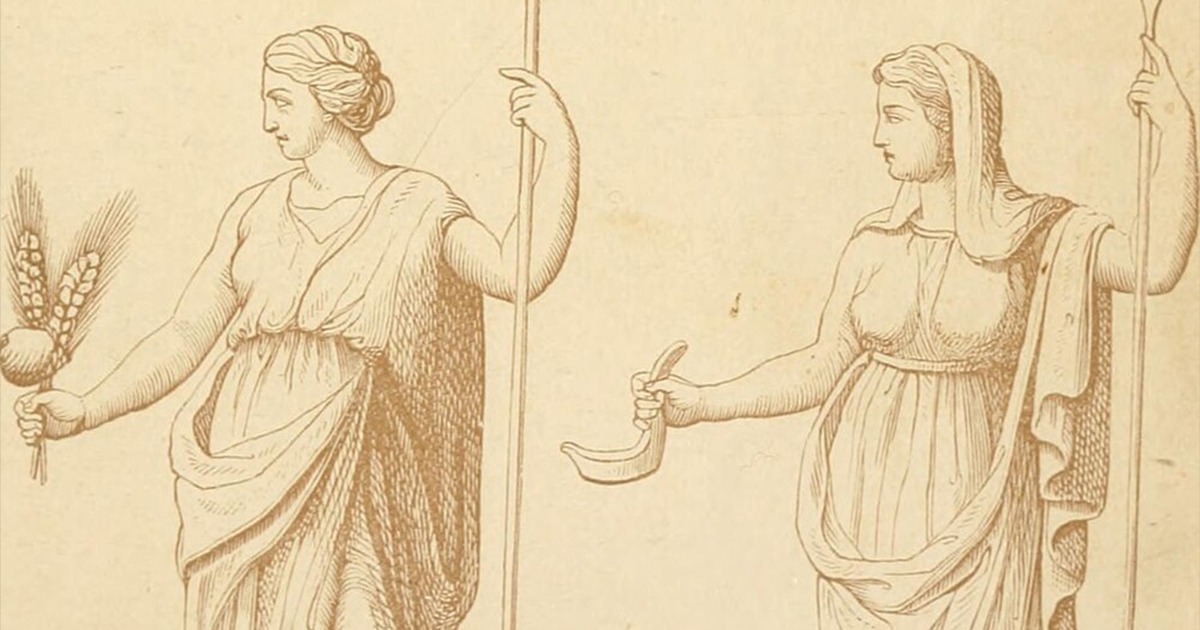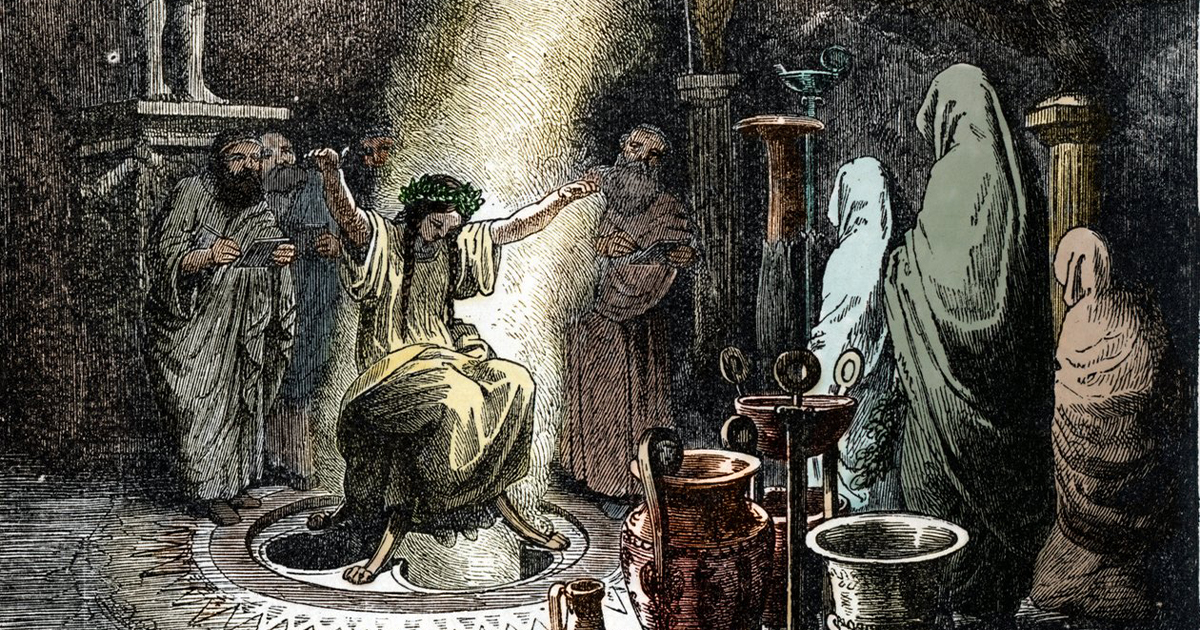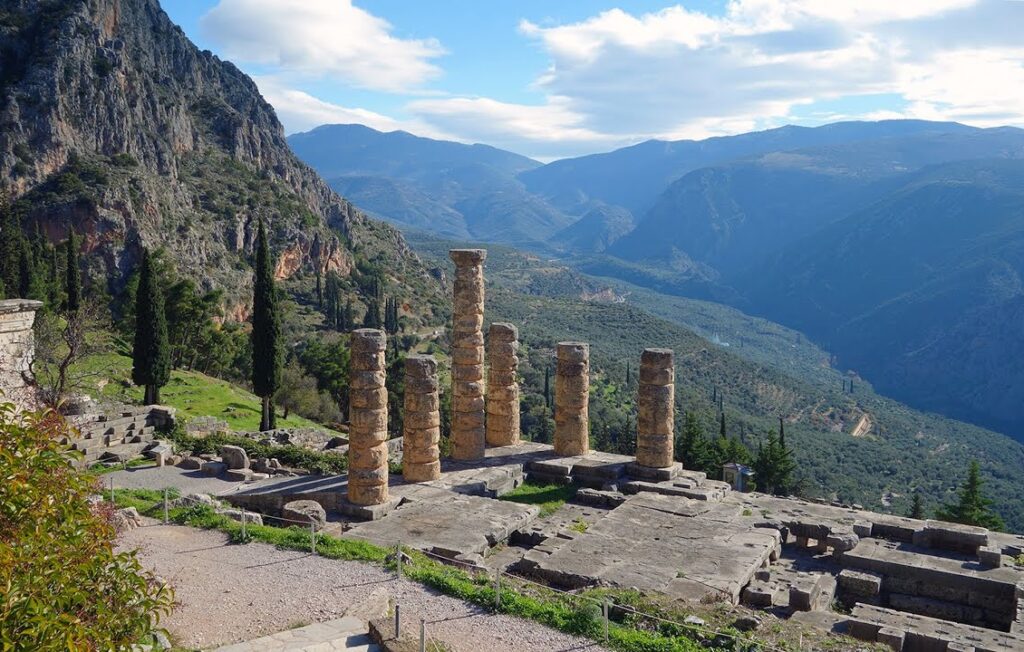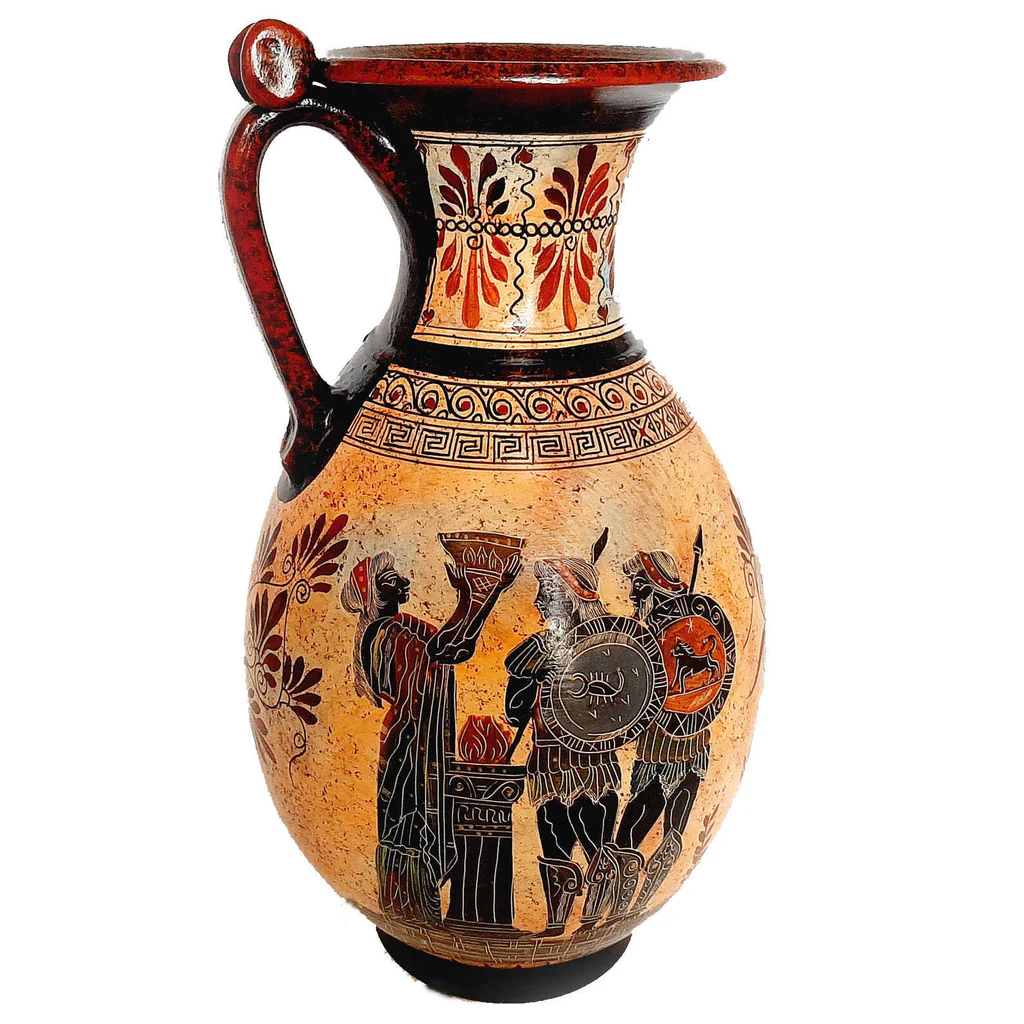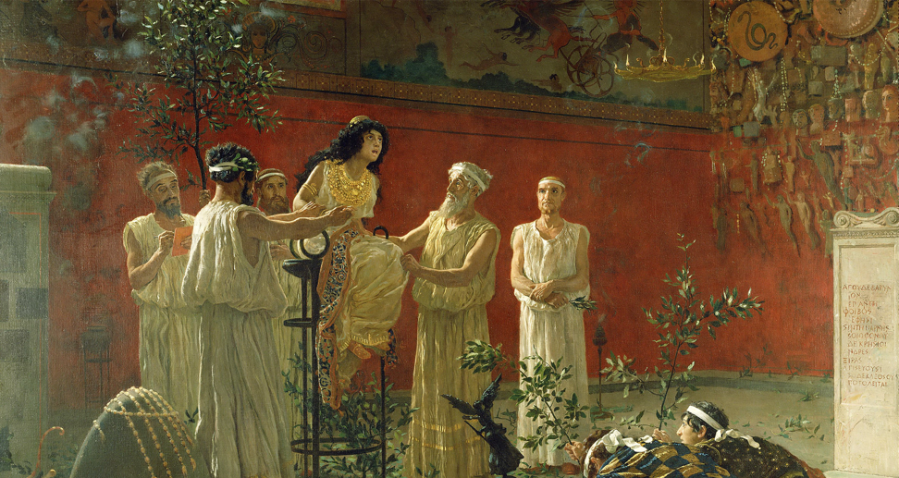Hestia does not fight in the Iliad, storm Olympus in a rage, or hurl curses at unlucky mortals. She stays close to the hearth. In Greek religion, that was not a sign of weakness. It was the centre of life. The hearth warmed, cooked, lit, and sanctified the house. Every meal, every sacrifice, every family ceremony touched her flame. While other Olympians won glory in battle or seduction, Hestia kept the home steady. Her quiet role was essential enough that every public altar began and ended with offerings to her.
Ancient poets rarely gave her dramatic speeches. That suited her nature. Hestia’s presence was constant but understated, more like a steady note in the background than a sudden fanfare. In temples, she had no wild festivals, no grand statues to rival Zeus or Athena. Yet in homes, she reigned without question. Her power was not the kind that seized; it was the kind that held, linking the lives of gods and mortals in daily acts.
Who Hestia is in the Greek pantheon
Hestia is the firstborn of Cronus and Rhea, sister to Zeus, Poseidon, Hades, Hera, and Demeter. As the eldest child, she was swallowed by Cronus and later freed by Zeus, along with her siblings. When suitors came — notably Poseidon and Apollo — she refused both. She asked Zeus for the honour of remaining a virgin goddess, devoting herself to the hearth. He granted her a high place in the Olympian order and the first share of every sacrifice.
By birth and by choice, she stands apart from the rivalries that drive so many divine stories. She does not leave her place for adventures in disguise or revenge. Instead, she occupies a role both domestic and civic, linking the household hearth to the public hearth of the city.
The hearth as sacred space
In the Greek world, the hearth was more than a cooking place. Its fire was a living symbol of the family’s identity. Extinguishing it was a serious event, done only for purification or when moving house. When a new home was established, fire was carried from the family’s ancestral hearth or from the city’s central flame to kindle the new one. That act literally and spiritually joined the new household to the larger community.
Hestia’s name meant “hearth” in Greek, making her the embodiment of this sacred centre. At the start of each day, a small offering — a bit of food, a splash of wine — might be given to her before anything else was eaten. In city halls, the prytaneion held the public hearth, tended in her honour, where ambassadors were received and oaths were sworn.
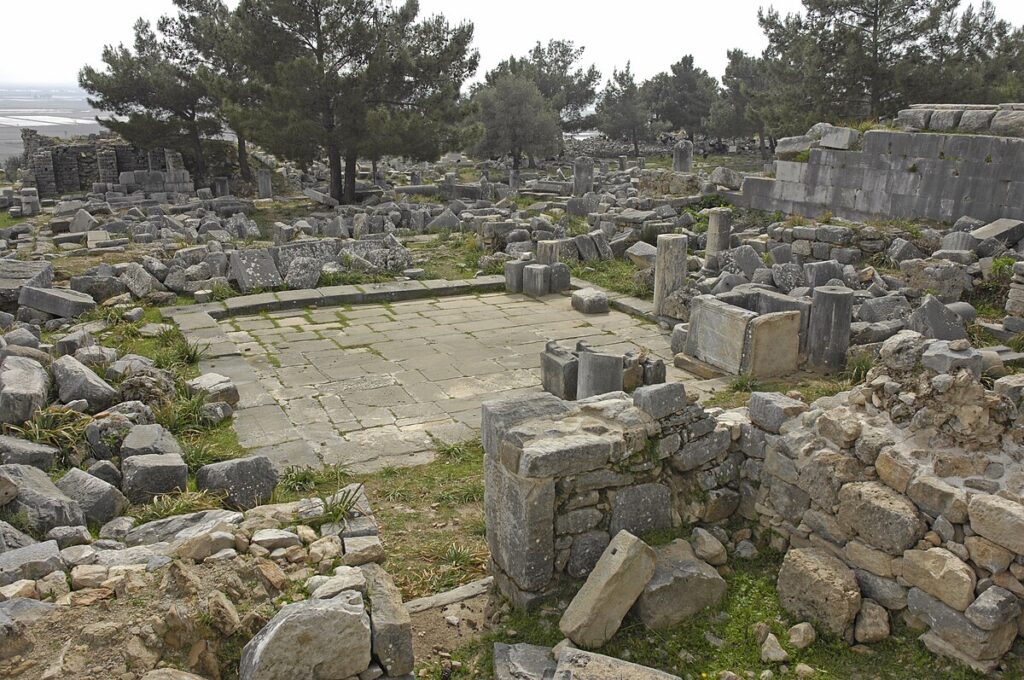
Her place in public religion
Greek cities treated Hestia’s fire as a sign of stability. As long as it burned, the city was safe. If the flame went out unexpectedly, it was an ill omen, calling for purification and rekindling from another sacred source. New colonies, when founded, took fire from the mother city’s hearth to light their own, carrying Hestia’s blessing across the sea.
Festivals for other gods often began with a libation to her. This habit made her a silent partner in almost every public ritual. She rarely had temples of her own, but her presence was woven into the architecture of civic life. The prytaneion was not just a council chamber — it was the city’s symbolic kitchen, with Hestia as hostess and guardian.
In the home: daily acts as worship
In private life, Hestia’s cult was simple yet pervasive. A family’s hearth was her altar. The household head acted as her priest, making offerings at meals and on important occasions — births, marriages, departures, and returns. When guests entered, they might be welcomed with a small libation poured into the fire, invoking her to bless the meeting.
Greek plays and poetry show her invoked in moments of crisis at home. In Euripides, characters swear by Hestia to emphasise sincerity, as if calling the house itself to witness. This made sense: to lie by the hearth was to pollute it. Truthfulness was a form of piety.
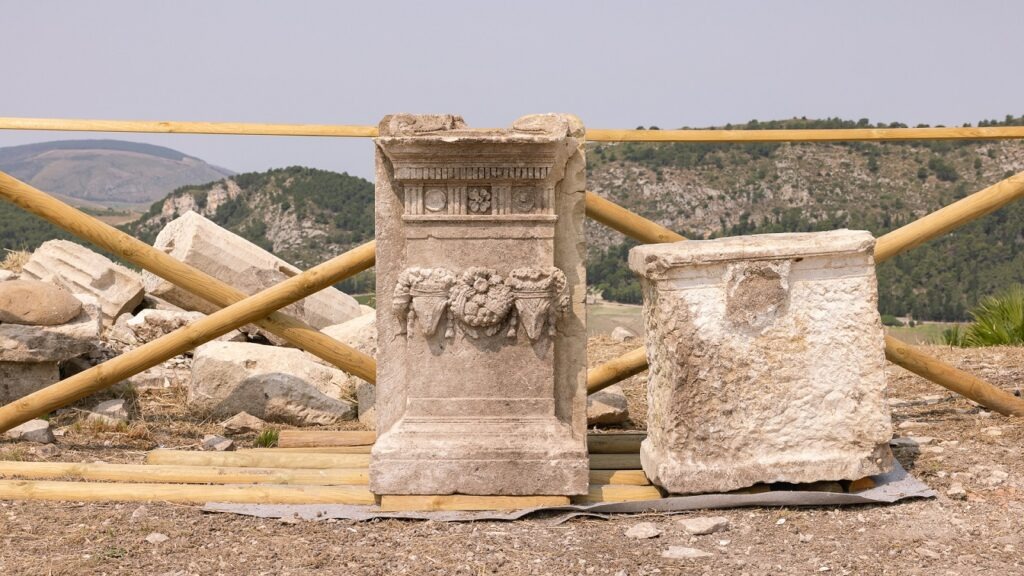
Why she stayed out of the myths
Some scholars think Hestia’s absence from most mythic drama is deliberate. She represents constancy. Her story would not benefit from being tangled in feuds and jealousies. In that way, she is like the hearth itself — always there, rarely the centre of a story, yet impossible to live without. By refusing marriage and adventure, she stayed free from the cycles of revenge that pulled in other Olympians.
Her virginity has a symbolic edge. In a world where marriage often shifted women between households, Hestia belonged to all homes and to none. She was the unbroken flame, not carried away or extinguished by personal entanglement.
Comparisons with other hearth goddesses
Hestia is often compared to Vesta, her Roman counterpart. While the Roman state developed a highly formalised cult of Vesta with priestesses (the Vestal Virgins), Greece kept Hestia’s worship simpler and more domestic. This difference reflects broader contrasts between Greek and Roman religion — the Greek preference for integrating divine presence into many small acts, and the Roman tendency to centralise certain rituals into public institutions.
Other cultures also had deities tied to the hearth, but few held as central a place in both private and civic religion as Hestia. This balance of roles makes her unique in the Olympian family.
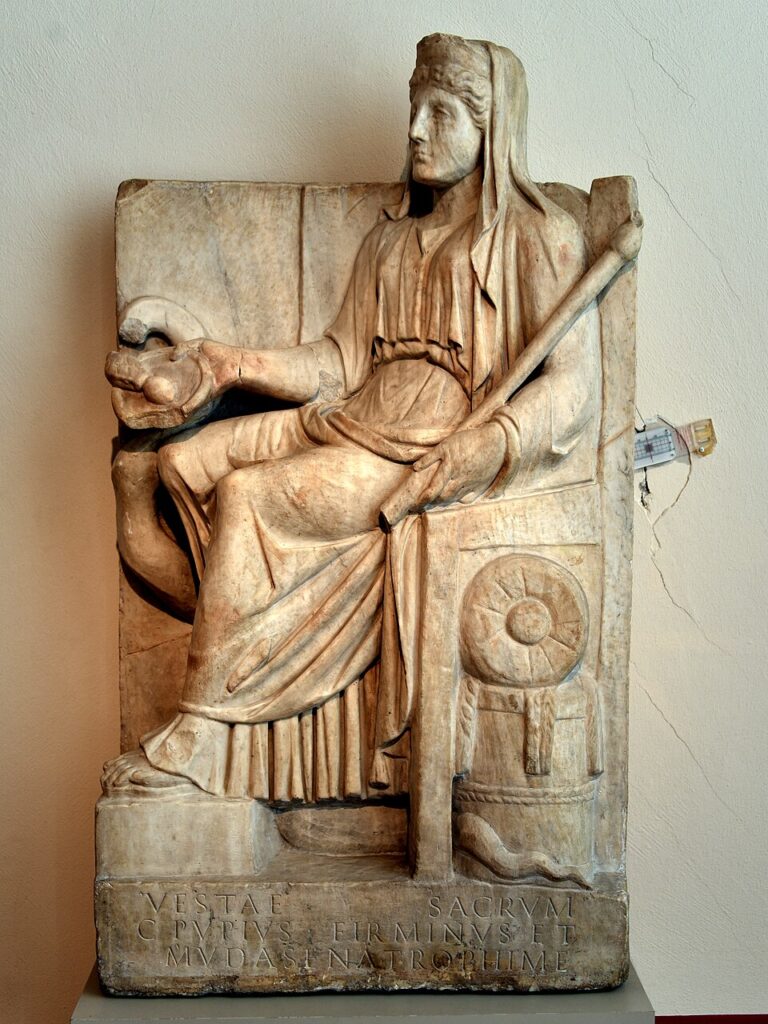
Symbolism and virtues
Hestia stands for more than warmth and food. She symbolises harmony, hospitality, and the bond between family and city. Her constancy was a reminder that a well-tended home was the root of a well-tended community. Neglect the hearth, and the bonds that hold people together weaken.
Philosophers sometimes used her as a metaphor for stability in the soul. Just as the hearth’s fire must be fed and guarded, so must a person’s inner order be maintained against chaos. In this way, her cult crossed from religion into moral teaching without losing its simplicity.
Decline and endurance
With the rise of Christianity, household worship of the old gods faded. Public hearths dedicated to Hestia were extinguished or rededicated. Yet the symbolism of the hearth endured. Even without her name, the idea of the home’s fire as the centre of life persisted in proverbs, architectural design, and ritual language.
In modern Hellenic revival traditions, Hestia often takes pride of place in household altars, a quiet echo of her ancient role. She appeals to those who value stability, care, and the daily work of keeping life in order — qualities as relevant now as in classical Athens.
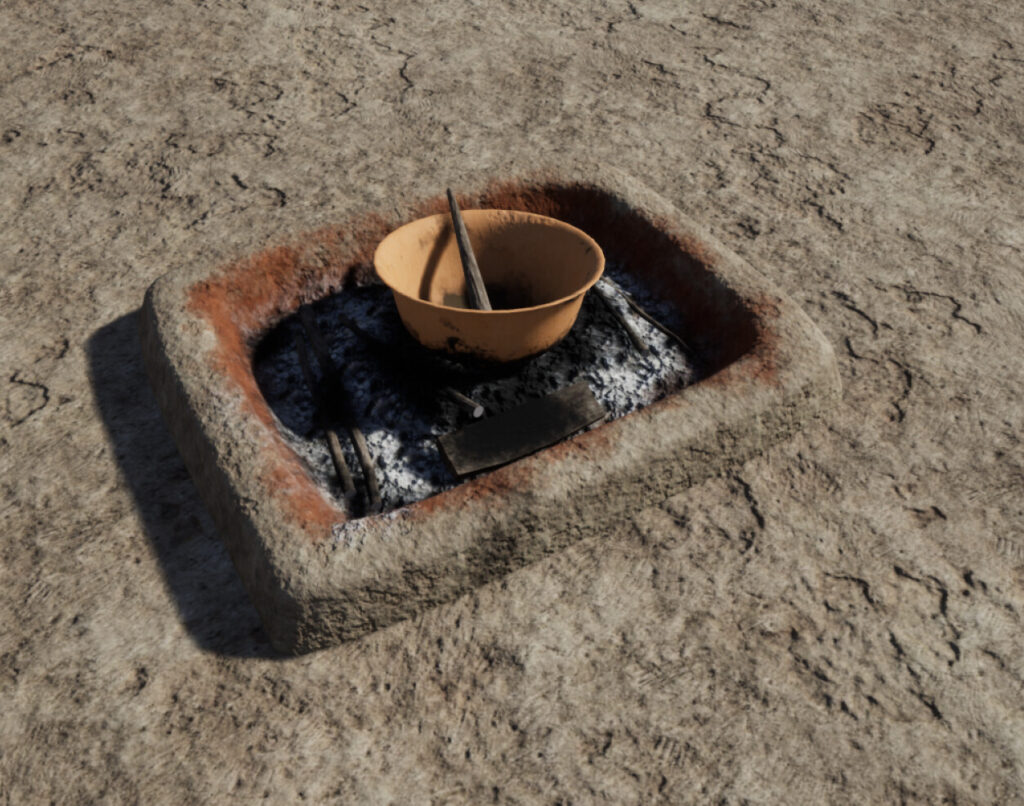
Why she matters now
In a culture that often celebrates noise and spectacle, Hestia reminds us of the power of the steady, the unseen, and the foundational. She is the friend who stays to clean up after the feast, the one who keeps the light on for travellers, the flame that never asks for thanks yet is missed the instant it goes out.
Greek religion placed her at the start and end of every offering for a reason. Without her, the structure of life itself falters. In that way, her quiet power is not just a relic of the past but a living lesson: some of the most important forces in our lives are the ones we take most for granted.
